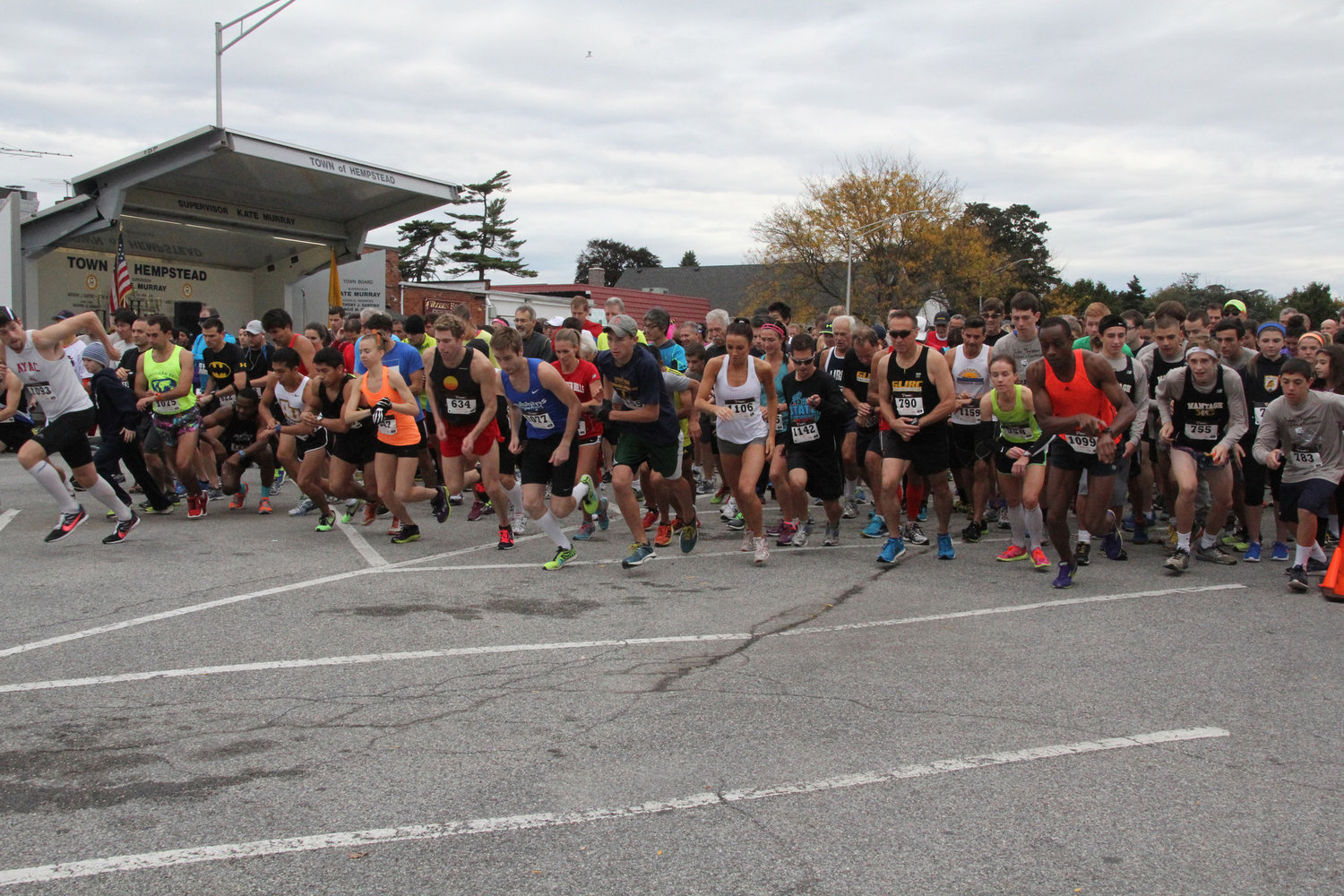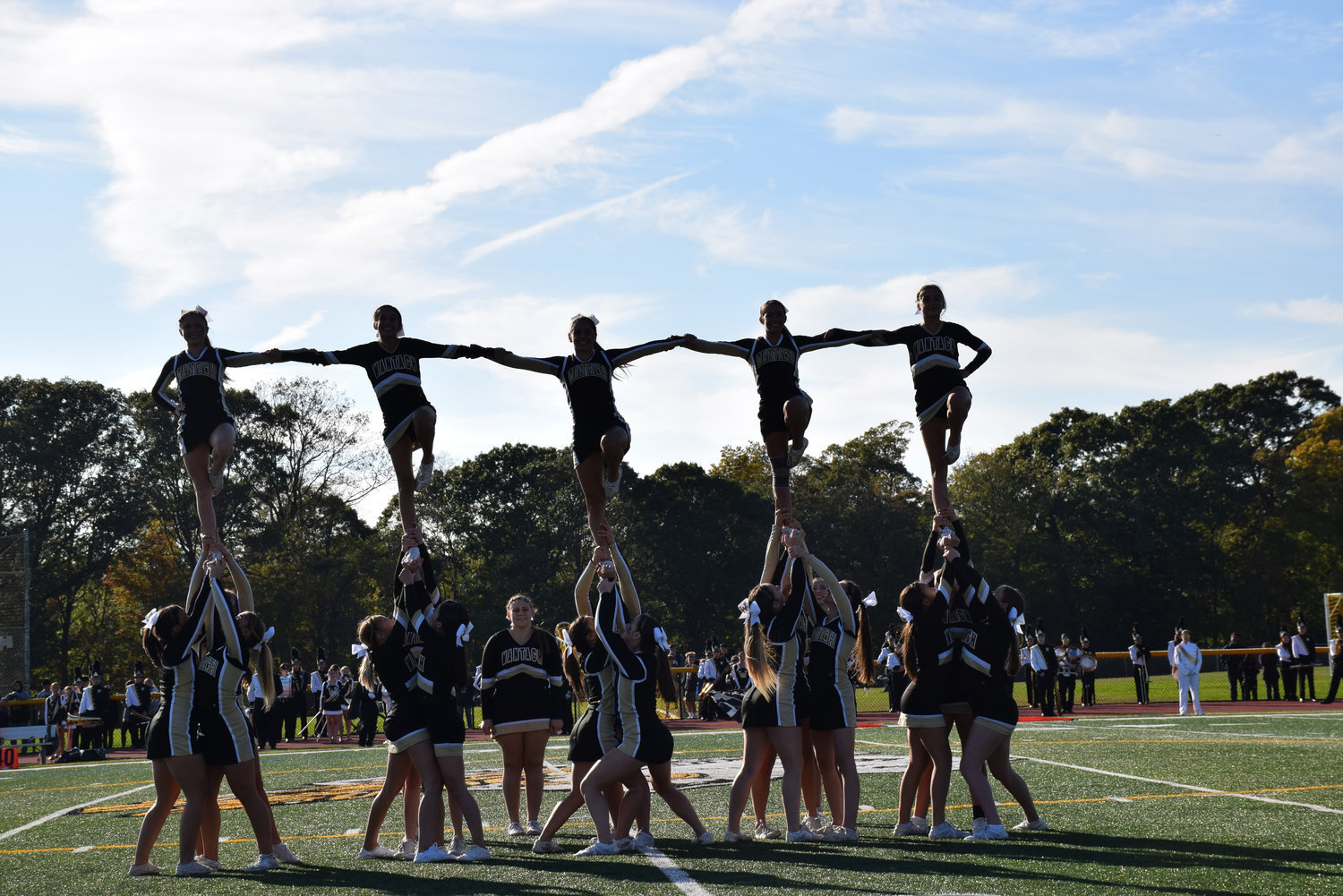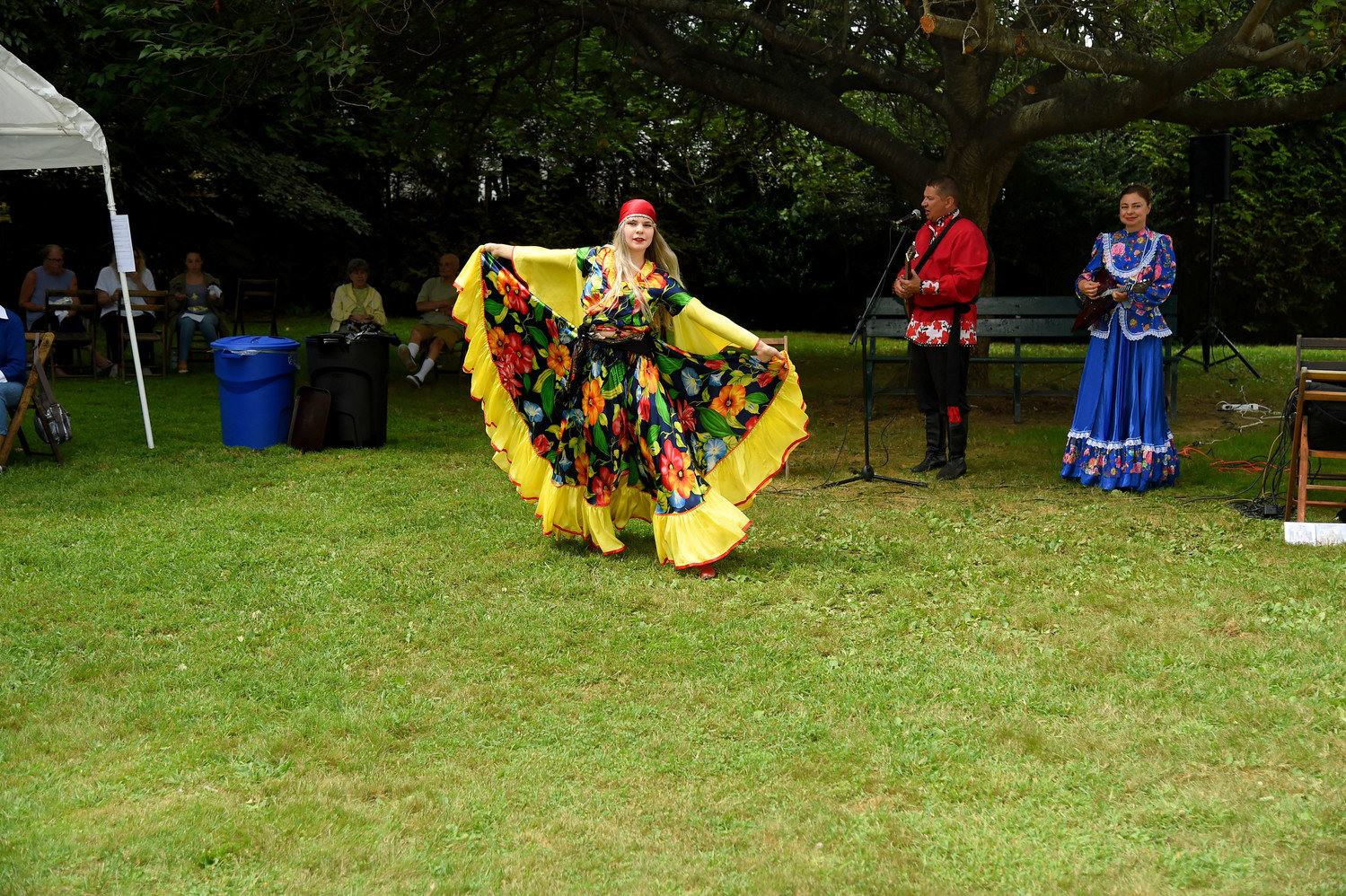Fundraisers falter in the face of cancellations
In most years, the beginning of school represents the starter’s pistol for a long list of events. School sports teams begin competing, high schools prepare for Homecomings and local charities raise money for causes as varied as pancreatic cancer research and potable water in the Third World.
This year, though, dozens of annual activities have been canceled or postponed.
“Usually, there’s a lot going on this time of year,” Seaford community activist Donna Jebaily wrote in an email last week. “If Covid didn’t exist, we’d be finalizing our plans for Oktoberfest [this] weekend. But that’s not happening. It’s quiet.”
More than two dozen events that normally take place in Seaford and Wantagh from Labor Day through Columbus Day are in some form of abeyance. And in some cases, the postponements or cancellations mean the loss of significant revenue for their sponsors and the local charities they support.
At Holy Trinity Orthodox Church, the annual festival normally scheduled for Labor Day weekend was taken off the books three months ago. The parish, which serves the entire South Shore, depends on the income from the event not only to help pay its expenses and support its food ministry. The festival is an important part of the church’s local outreach efforts to the surrounding communities, Parish Council President Loraine Babaian said.
“We were able to get a PPP loan to cover the lost revenue,” Babaian said, referring to the federal Payroll Protection Program. “That should eventually be forgiven.” But the food, music and fellowship are also a vehicle for generating interest in the Orthodox faith, and no loans can replace that.
The parish also had to cancel its annual CROP Hunger Walk. Last year the walk raised more than $14,000 to help provide food security, clean water and micro-loans to fledgling businesses, both locally and in the developing world. “Twenty-five percent of the money raised is used to support local needs,” Babaian said.
Donations can still be made online, by visiting https://www.crophungerwalk.org/Donate.
Christ Lutheran Church, in Wantagh, has not given up hope that it will be able to hold some version of its fall fair, according to the Rev. Martin Nale, the church’s pastor. So far, however, not even a tentative date has been set.
The church still has not resumed services in its chancel, according to the church newsletter. It continues livestreaming them on Facebook.
The John Theissen Children’s Foundation, headquartered in Wantagh and serving all of Long Island, has been hit especially hard. Founder and Chief Executive Officer John Theissen said the loss of revenue from events normally scheduled for the fall — like the Freaky 5K Run/Walk, which would have taken place this month — has so far totaled roughly $300,000.
Even the back-to-school drive that provides students with backpacks and school supplies had far less response than usual. “Last year we collected about 2,000 backpacks,” Theissen said. “This year, it was only about 1,200.
Like Holy Trinity, the Theissen Foundation received a PPP loan, and is continuing operations. “We’re planning for the Christmas toy drive,” Theissen said. “Last year we placed about 300 toy boxes across Long Island. Some of them were filled four or five times a month.” Most were placed outside businesses. With people at home now, he said, it was difficult to estimate what the response would be this year.
Homecoming
Both Seaford and Wantagh high schools have taken Homecoming off their fall calendars, but Wantagh, at least, hopes to hold the event next year, when sports programs are scheduled to resume.
“We’re calling it a postponement rather than a cancellation,” Wantagh High School Principal Dr. Paul Guzzone said. “We debated holding a scaled-down version with the Homecoming court. But we couldn’t really do the parade, and without the football game as the centerpiece, it just didn’t feel right.”
“The cancellations have really hit seniors the hardest,” Guzzone added. “But things that can be held virtually, like college fairs, are still happening, and you can tell that students are just really happy to be back in the buildings with their friends” — even on the school’s hybrid schedule.
Small or specialty nonprofits appear to be hardest hit. The Seaford Historical Museum decided to cancel its annual fall fundraiser, Historical Society President Judy Bongiovi said. The museum, which is just completing major renovations, came up with alternatives, such as the Historical Trail, which allows donors to become part of the museum — literally. They can purchase commemorative bricks, for $100, that will be installed on the pathways surrounding the museum.
Whether these organizations, and dozens more like them, will be able to survive the Covid tsunami will depend on its duration and the willingness of the federal government to make funds available to municipalities. Just as businesses and local governments will look to the government for aid to make up for lost revenue, local charities will depend on those businesses to continue their operations.
Many charities provide essential services in the local economy. Unlike other developed nations, the U.S. does not have a tradition of extensive government programs providing a safety net for those who have fallen on hard times. Food banks, homeless shelters and various other supports for struggling families depend on volunteers. Financial support from local businesses is crucial. And with more than 200,000 Long Islanders currently out of work, according to the N.Y. State Department of Labor, that need is greater than ever.

 50.0°,
Overcast
50.0°,
Overcast 









